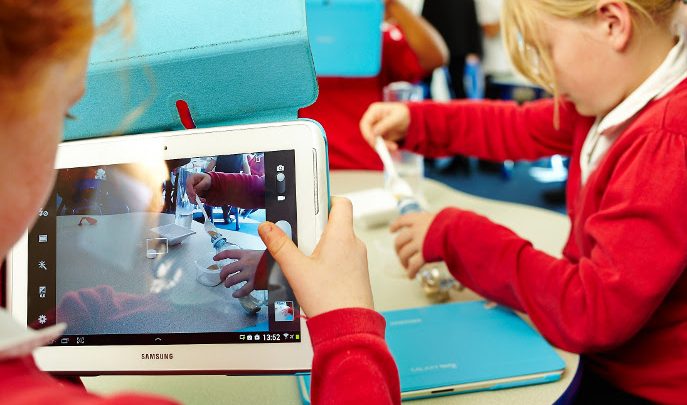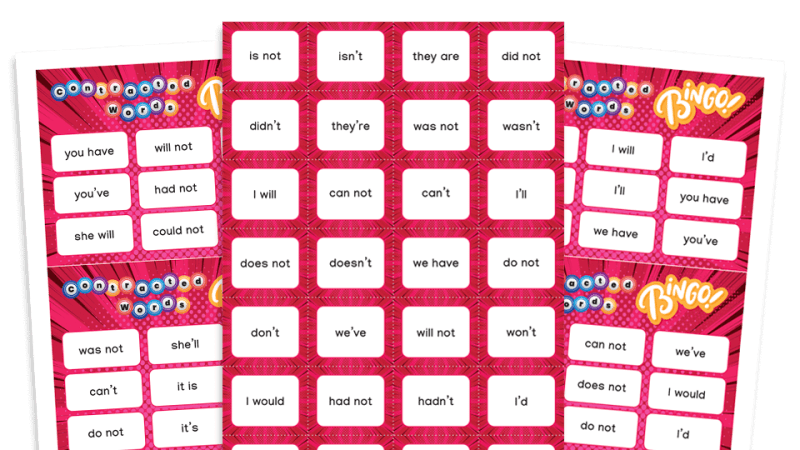Can Tech Help Underprivileged Schools? One Project Gave Them The Chance To Find Out

Samsung's Digital Classroom provided schools with a whole classroom suite of gadgets to see if switched-on devices meant switched-on students

“Look at the size of the telly they’ve got in their room now!”
That was the general reaction of students at Springwell Park Primary in Liverpool walking past a 75-inch HD screen, which was so big that it couldn’t be wall mounted. This colossal interactive whiteboard was given to the school as part of Samsung’s Digital Classroom project, a three-year study that supplied a suite of classroom technology, including tablets, laptops and Chromebooks, to underprivileged schools across the country to research the effects of tech on teaching and learning.
“The difference was almost instantaneous,” says Phil Nottingham, the school’s IT coordinator. “We were one of the first schools to use the equipment in KS1 – most implemented it in KS2. With the area we’re in, very few of our children have much access to anything at home tech-wise, so we wanted to give our kids that access from as early an age as possible, and they took to it really quickly.”
“We tend not to use dry whiteboards any more, as once you’ve wiped them clean the information has gone”, says Phil. “Whereas with a note-taking app, the kids can just create a new page on the tablet and you end up with a working document of their ideas. After a couple of weeks you can look back and say: ‘Look what you did then compared to what you can do now’.”
At Bede Primary in Gateshead, every child that has taken part has seen their grades rise by two levels. “We’ve got 82% of kids on free school meals, and we’re in the bottom 0.6% in the government’s poverty indices,” says Key Stage 2 Leader and Year 6 teacher, Andrew Riley. “In my class there was only one child who could place the UK on a map two weeks ago. They don’t know about Scotland, either, and we’re just 60 miles from the border. Now we’ve got kids who enjoy coming in at lunchtime just to have five minutes on Google Maps.”
What Andrew wanted to do was make the classroom an immersive digital environment, starting with having the technology constantly at the children’s fingertips. “On each desk they’ve got QR codes printed that show them the core concepts in maths,” he says. “This means if they’re ever stuck, they can find solutions themselves. It’s made a huge difference in their confidence and independence.”
Andrew also uses QR codes for differentiation – for example, when picking out reading material for advanced or less-confident readers. He can select a range of titles suitable for groups of readers in the class, and assign a QR code for each. Children can then come in, scan the appropriate code for their reading level, and pick from the books that Andrew has suggested.
On top of all that, Andrew is also embracing flipped learning. “I use my own YouTube channel to put together videos on things like the English Civil War, or maths concepts,” he explains. “One boy’s dad doesn’t usually like helping him with his homework, but because they could sit together and watch the video first, he felt more confident doing so.”
At Plymouth Grove in Manchester, the student body includes over 30 different nationalities, so things like Google Translate have had a big impact. “We had three children arrive whose family speaks Italian and Urdu,” says Dan Heap, computing teacher and Year 4 team leader. “But their Italian is much better, so even our Urdu-speaking staff can’t really communicate with them. With Google Translate, we can at least give instructions as to what we want them to do in these early days where you just want them to settle in and make friends. We also use the 1,000 Words app, which has games involving the most important words in the English language, which is great.”
The first class at Plymouth Grove to take part in the Digital Classroom were in Year 5, and when they moved on to Year 6 they became one the top 100 most improved schools since KS1. “I’m not going to say that’s entirely down to the tablets, but in terms of engagement they played a huge part,” says Dan. “In a way it invigorated me as well. It gave me a whole new toolkit, and stopped me doing things the way I’d always done them.”
Find out more about Samsung’s Digital Classroom and its research findings here.












